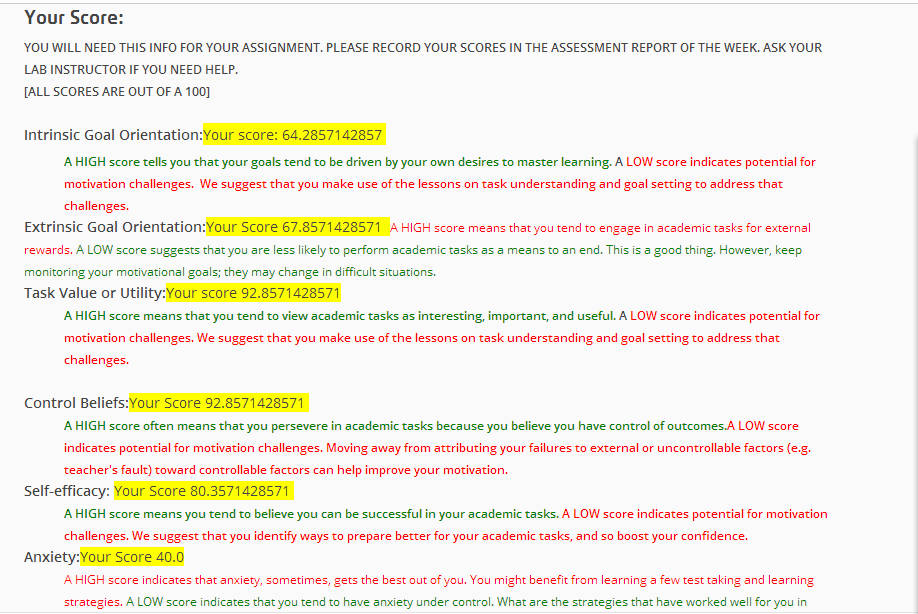some comments
High Scores: Above 70. Low Scores: Below 50.
· Intrinsic Goal Orientation. This scale measures the degree to which you perceive yourself to be participating in academic tasks because of the experience or inherent value versus the outcomes. A high intrinsic goal orientation score means you tend to engage in tasks for challenge, mastery, learning, and curiosity.
· Extrinsic Goal Orientation. This scale measures the degree to which you perceive yourself to be participating in academic tasks because of the outcomes rather than the experience or inherent value. A high extrinsic goal orientation score means you tend to engage in academic tasks for grades, rewards, and competition (doing better than others).
· Task Value or Utility. This scale measures your general perceptions of how useful academic tasks/work are. A high task value usually means you view academic tasks/work as interesting, important, and useful.
· Control of learning. This scale measures perceptions or beliefs that effort on your part will result in positive outcomes and that outcomes on academic tasks are contingent on your effort/engagement rather than external factors such as professors. High scores on control of learning beliefs often means you will be more strategic, effective, effortful and persistent in studying because you believe you have control of outcomes.
· Self-efficacy. This scale measures your performance expectations and confidence. A high score means you tend to believe you can be successful in your academic tasks. You are confident in your task related skills/ability and you generally expect to perform well.
· Anxiety. This scale measures the prevalence of negative thoughts that disrupt performance as well as affective and physiological arousal associated with anxiety. A high score indicates that anxiety sometimes get the best of you and you might benefit from learning effective learning and test taking strategies.




